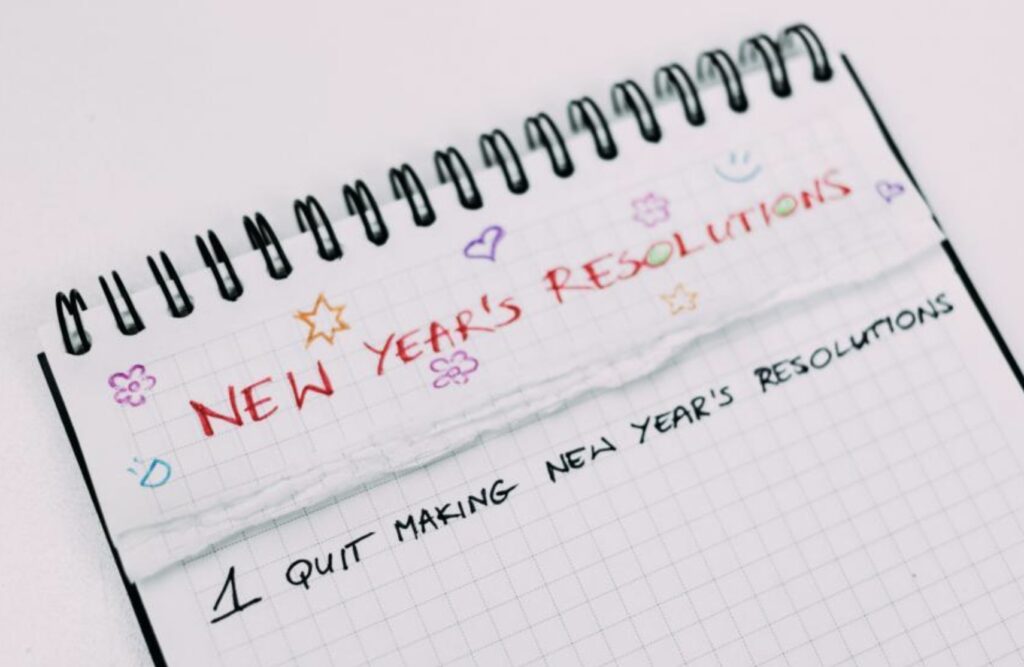Better goals for 2025; black plastic rescued; pretty books: Newsletter 1 January 2025

Newsletter 75: Resolving to make better New Year’s resolutions, Melania’s stickiness, new agents and publishers, plus three people to follow and three books to read.
High resolution
Have you made a New Year’s Resolution? You will fail, you know. But if you want to fail successfully — and eventually succeed — here are some questions for you.
(I am no expert on human psychology. I am just a person with decades of experience in failing, and sometimes getting better, at doing what I hoped to do. Judge for yourself.)
- Can you imagine yourself as the person you will be once you have succeeded with your resolution? Is that a better person than you are now? If so, you may maintain the motivation to succeed. If not, forget it. Nobody sticks with a resolution that doesn’t have a big payoff.
- Have you made several resolutions? Pick the one that matters most to you and work on that. If you succeed, you’ll be better. If you fail, know that having made more resolutions would not have helped.
- Who is keeping you accountable? Do you have a coach or friend to talk to? It’s easy to let yourself down; inertia is your enemy. But it is far less easy to admit to somebody else that you fell short.
- Is your goal achievable? It’s fine to aspire to write every day or lose 20 pounds. It is not helpful to aspire to write a finished novel from scratch in a month (unless you’re already a novelist), or lose 100 pounds. If you achieve your achievable goal, you can always go further.
- Is your goal measurable? “Try to be nicer to people” is not a measurable goal. “Write a journal entry six days a week and reflect on when I was nice or not so nice to people” is something you can verify. Any resolution that includes “try” is worthless.
- Is your goal on a scale, or binary? You’ll lose steam pursuing binary goals defined exclusively by success or failure (“Write a book”). Instead, goals like “spend an hour every day on book-related tasks” or “Write 500 words every day” are on a scale. If you succeed three or four days a week, you’re still making progress. A goal like “Eat no more than 125g of carbohydrates a day” is similar: if you end up at 150, you’re doing great.
- Have you allowed for shifts in your goal? If you get laid off in the middle of your quest, your life will change. You’ll have to modify your resolution. If you achieve your resolution after three months, how could you build on it? If you learn that your goals isn’t what you’re really after, how could you change it?
Regardless of whether you officially “succeed” with your resolution, these are tips that will allow you to learn from the effort. And in the end, that’s progress every one of us can make.
News for writers and others who think
Smear campaign? Melania Trump’s memoir arrived in some customers’ mail with sticky goo all over it. Even so, it’s still in the top 100 books on Amazon, three months after publication.
You may have read that black plastic spatulas and other utensils had an unhealthy level of flame-retardant chemicals in them. You may not have read that the original paper citing the problem had a math error that meant that the actual concentration was one-tenth what was originally reported, within safety limits. Please check your calculations before scaring the pants off the population. (I credulously bought all new utensils.)
Jane Friedman published her annual roundup of new agents and publishers (link free to all). Publishing remains challenging, but hope springs eternal.
Publishers continue to create cool-looking physical books with patterned edges and fancy covers (NY Times, gift link). Books are not just content — they’re also cultural icons, and people still feel fondly towards their collections.
Three people to follow
Bronwyn Williams , contrarian futurist and economist.
Vanessa Errecarte, MA, MBA, UC Davis lecturer and personal marketing super-smarty.
Dr. Dennis Becker , public speaking coach and expert on how to deal with psychological manipulation in interpersonal relations.
Three books to read
Character Limit: How Elon Musk Destroyed Twitter by Kate Conger and Ryan Mac (Penguin, 2024). New York Times reporters chronicle the decline and fall of the iconic media channel.
Fact Forward: The Perils of Bad Information and the Promise of a Data-Savvy Society by Dan Gaylin (Wiley, 2025). Insightful take on how citizens can understand truth in data — and support it as part of our national infrastructure.
The Year of Less: How I Stopped Shopping, Gave Away My Belongings, and Discovered Life Is Worth More Than Anything You Can Buy in a Store by Cait Flanders (Hay House, 2019). What happens when you stop shopping and accumulating posessions?